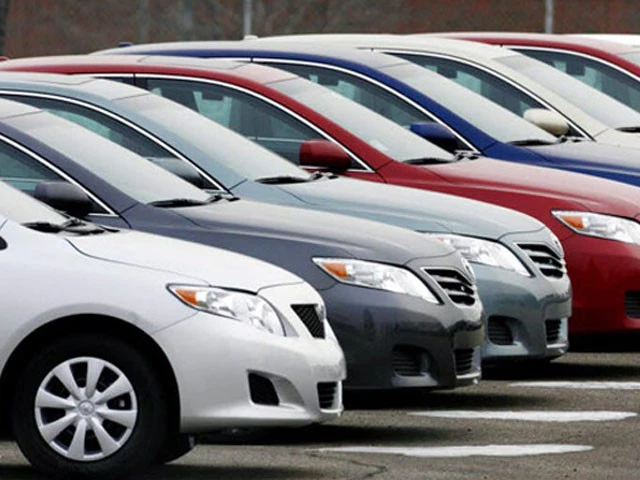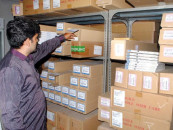Auto sector divided on new budget
Some air concern over impact on local manufacturing; others dub new policies balanced

Auto sector experts and consultants expressed serious reservations about the finance minister's budget speech and called for reviewing the federal budget before seeking approval from the National Assembly (NA).
Talking to The Express Tribune, Auto Sector Expert Mashood Khan said the finance minister's budget speech closely mirrors the International Monetary Fund's (IMF) recommendations. The downward trend in additional customs duty, regulatory duty and customs duty will likely hit local manufacturing instead of exports in the future. Severe consequences for the local manufacturing industry may be predicted and witnessed. Without a thriving domestic industry, the import bill will surge, and foreign reserves will take a hit. The auto parts and other manufacturing sectors will face major challenges. It is unclear how exports will increase without a robust local industry.
"I urge the federal finance minister to revisit the budget before seeking approval from the National Assembly. Without a supportive industrialisation policy, local manufacturing will struggle, and exports will suffer," he said.
Moreover, Economic Strategist and Regional Expert Dr Mehmoodul Hassan Khan said the pledges for the creation of effective incentives and essential tax exemptions for the adoption and use of electric vehicles (EVs), contributing to the national goal of 30% penetration for new passenger EV sales and 50% for two- and three-wheelers by 2030, represent a paradigm shift towards a massive green transformation.
Additionally, reducing taxes on five-year-old vehicles is a step in the right direction, making imports more affordable, which would provide some much-needed financial relief to common consumers in the country.
The introduction of a holistic and comprehensive reform package, mainly gradually phasing out additional customs duty on vehicles and reducing regulatory duties, will also be beneficial for the local auto industry, creating a strategic balance between local and imported automobiles.
The government's recommendation that no new regulatory duties be imposed on the auto sector and its proposal for an annual 10% reduction in tariffs on used vehicles is a constructive step having multiplier effects.
The easy and smooth mechanism of issuance of licenses to 57 EV manufacturers for the production of two- and three-wheeler electric vehicles vividly reflects the strategic priority of the government in reducing carbon footprints and inching towards carbon neutrality.
Meanwhile, contrary to the above-cited views, another leading automobile consultant and expert, Shafiq Ahmed Shaikh, said: "In my opinion, the federal budget is good and balanced. With reference to the auto sector, the recommended National Tariff Programme with the plan is good for Pakistan and a requirement of today. As I foresee, by gradually lowering import duties, in the future it will not only stabilise the local and international markets but also have to be competitive with the global industry."
He said under the proposed tariff, the duties would come down to 15% from the current 20% over five years, whereas additional customs duty and regulatory duty will also be phased out. The government also plans to eliminate the Fifth Schedule and lower the maximum slab rate to 15%. This is a good overhauling of the trade regime and will definitely foster export-led growth. This was also the requirement of the IMF, which seeks to bring Pakistan's tariff structures in line with global norms. Now, through revolutionary changes, not only will policy stabilisation come, but easy access to international supply chains will also be opened.
"At present, this sector contributes around 4% of total tax revenue. I foresee that by taking the tariff rationalisation route, more revenue will be generated," he said.






















COMMENTS
Comments are moderated and generally will be posted if they are on-topic and not abusive.
For more information, please see our Comments FAQ